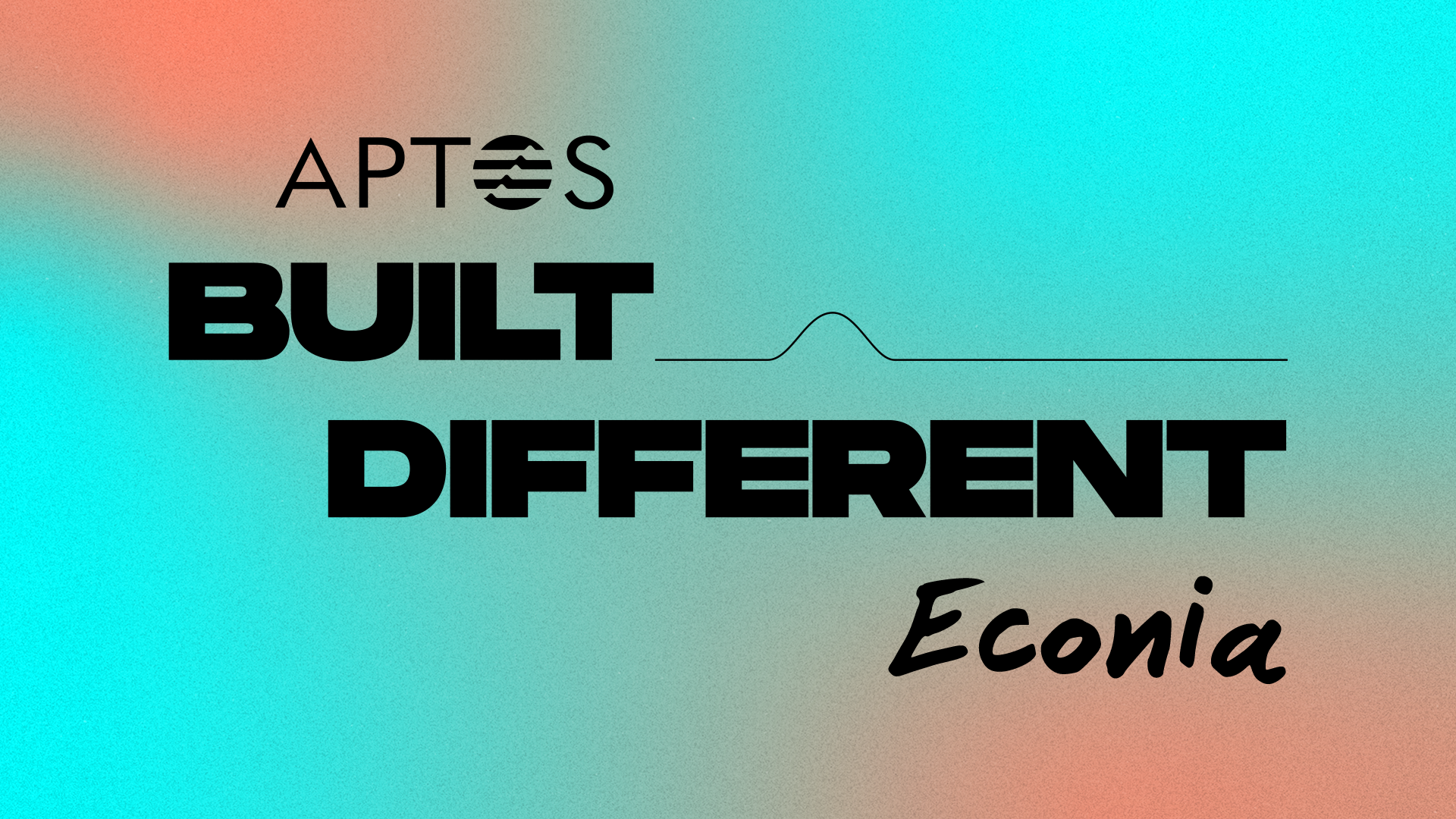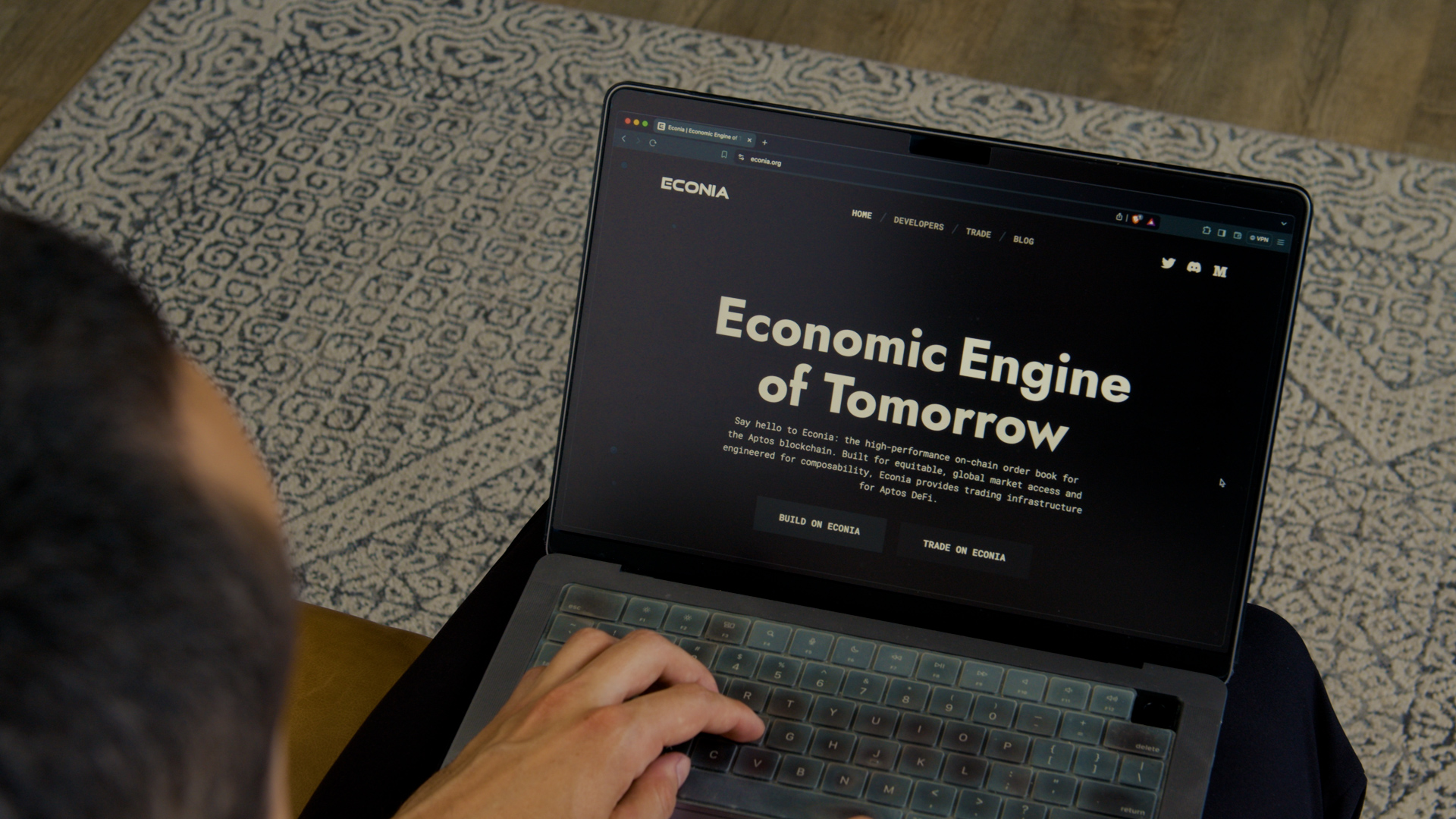DeFi Breakthrough: Econia Pushes Finance Forward on Aptos

For Econia co-founders Alex Kahn (CEO) and Kirsten Opp (COO), the journey started in 2022 at the very first Aptos Hackathon. That bootstrapped event proved to be a pivotal moment, deepening their connection to the Aptos ecosystem and its builders. As Kirsten recalls, “You could really feel people were there to build something new on a new blockchain that was really performant. What helped me bet on Aptos in the early days was the people I met when I was at the initial hackathon.”
“The Econia protocol started as a passion to improve what was already out there in the DeFi ecosystem,” Alex explains. Econia offers a new business model: liquidity as a product, a foundational layer for next-gen DeFi bases (people can fork and use to build their own dApps on top of it) with fast parallel transaction processing.
They built the underlying infrastructure to bring all these DeFi use cases to life—a hyper-parallelized and high-performance on-chain order book designed for atomic execution and settlement. Econia supplemented this with APIs and SDKs to access the order book and trade.
Econia Unlocks the True Power of DeFi
Many L1 blockchains that power DeFi have severe tech limitations: no true parallelism for financial transactions, write locks, and so on. This leads to longer queues, and insufficient speed for supporting high transaction volumes.
The Econia Labs team had previously faced these tech limitations themselves. As Alex recounts, the design process started on another chain, “I just kept running into the barrier of the Solana runtime and the parallelism that it offered. And when I first learned about the parallel execution model on Aptos, I realized that I could actually implement all of the designs that I thought should be contained in an on-chain order book, and then, essentially hit the ground running, building up different iterations.”
Making the switch to Aptos brought a serious upgrade to parallelism, leveraging Aptos’ Block-STM execution engine for higher performance, and its industry-leading low latency. Higher throughput while doing more transactions in parallel unlocks a unique application set, getting institutional-grade finance onboard and means new opportunities for stablecoins and the tokenization of more traditional real world assets.

Impressive Milestones, with Even More to Come
Econia has already seen some impressive milestones, including surpassing $500 million in total on-chain trading volume and more than 30,000 unique addresses. Additionally, as a further reflection of their success, they’ve received $6.5 million in seed funding led by Dragonfly. But as Alex shares, their journey is just beginning: "We are constantly shipping and iterating to build the most high-performance trading infrastructure possible."
The relationship between Aptos and Econia goes beyond a typical L1 network and product partnership—it's rooted in the community. As Kirsten shares, “We continue to build on Aptos because the ecosystem feels a lot like family, and we’ve built strong friendships within the community. Everyone is passionate about what they're building—we’re surrounded by innovation all the time.”